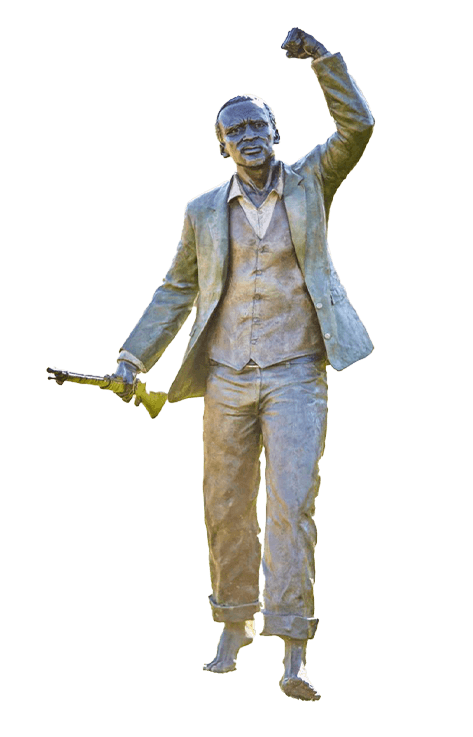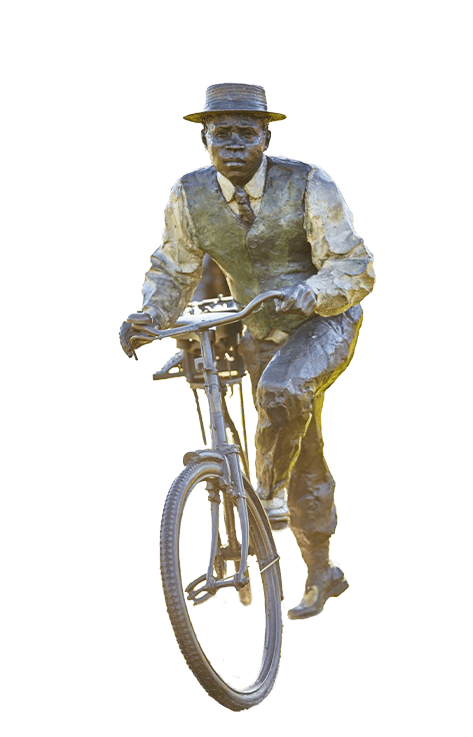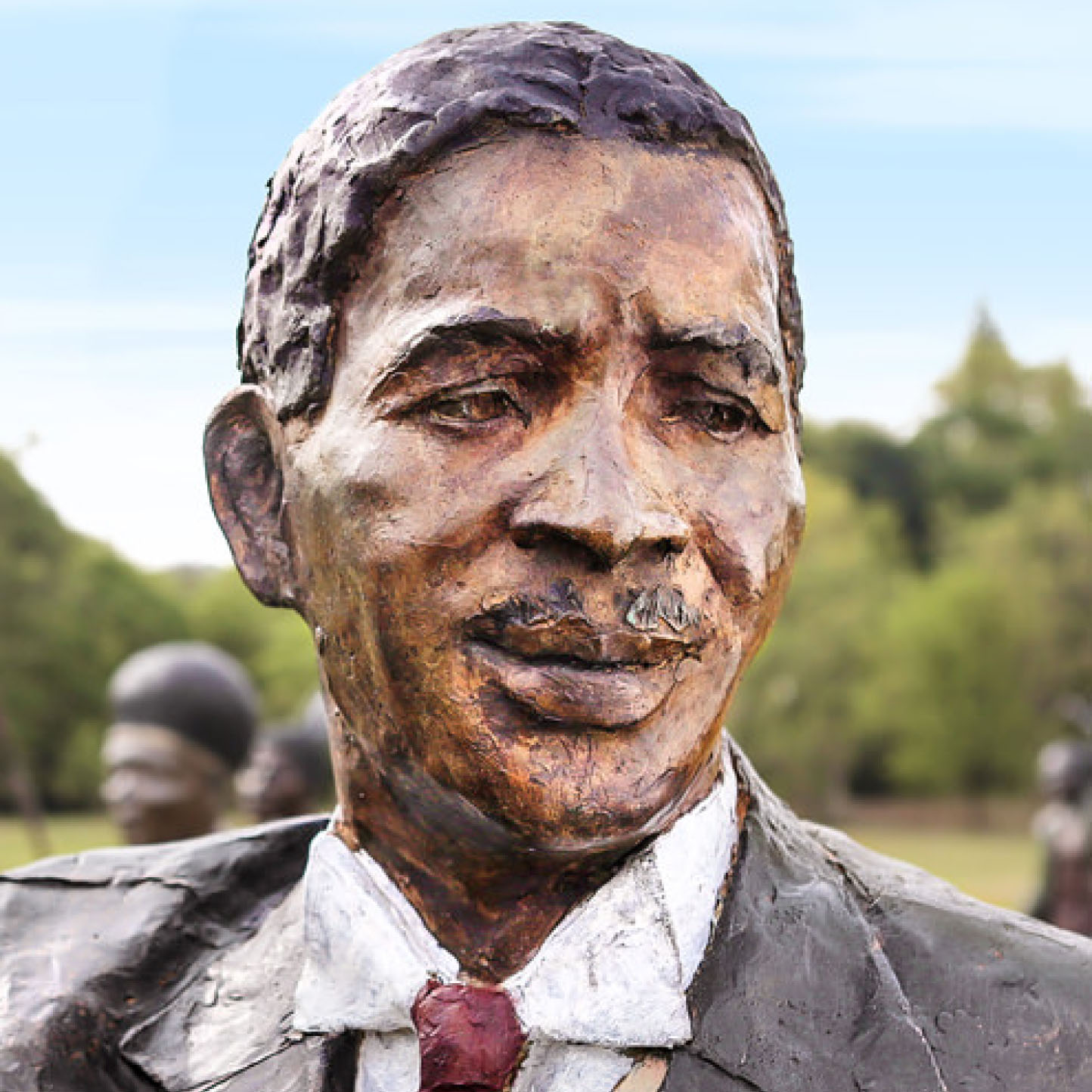
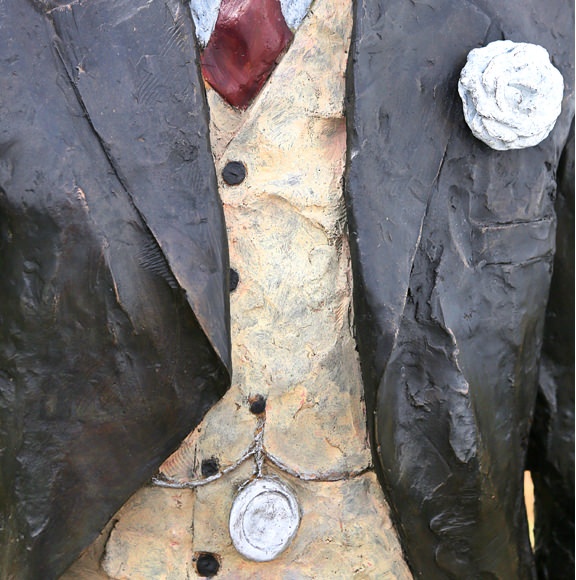
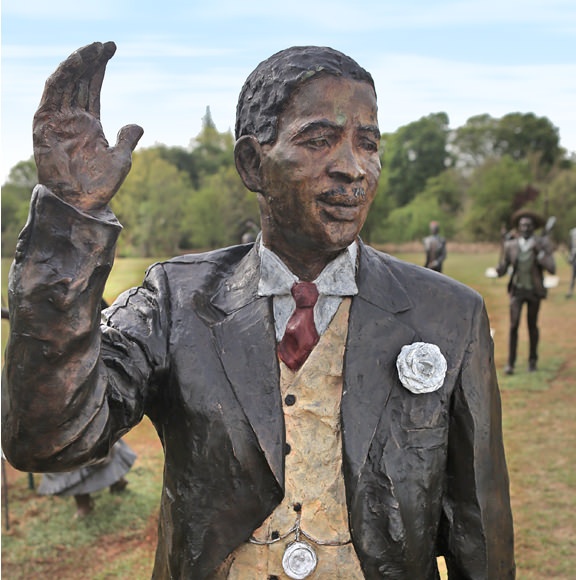
"The records which he left behind (at Lovedale), both in scholarship and on the athletic field are great enough to illuminate ten other college lives and make them all distinguished. His trophies revealed him a favourite in cricket and to be a holder of the half-mile record on the track. In competitive examinations he carried brilliant first or second prizes in Latin, Greek, Hebrew, Logic, Church History and Philosophy."
Pixley ka Isaka Seme, Biographical Sketch: Rev. W. B. Rubusana, ’Imvo Zabantsundu, 1911
Walter Benson Rubusana
1858 – 1936
Newspaper Editor, Founder of the South African Native Convention, Diarist and archivist, Deputy President of the South African Native National Congress, Member of the Cape Provincial Council
Walter Benson Rubusana was born at Mnandi in the Somerset East district of the British Cape Colony, the son of a senior councillor to paramount chief Sandile kaNgqika of the Rharhabe Xhosa.
He was born into a decade that witnessed the military defeat and economic destruction of the Xhosa kingdom as well as one of the most bitterly fought frontier wars.
After acquiring a primary school education, Rubusana was admitted to Lovedale, the Free Church of Scotland mission school in the Victoria East division of the Cape Province, in the Eastern Cape. Here, he studied for the Cape Teachers Certificate, passing the final examination with a distinction in 1878.
He remained at Lovedale to study theology and went on to take up a post at the Peelton mission station until his ordination as a minister of the Congregational Church in East London in 1884. His life-long political views were deeply influenced by his religious convictions and were based on his belief that racism was un-Christian.
In 1898, Rubusana co-founded the Xhosa newspaper Izwi Labantu (Voice of the People). He also acted as an advisor to Dalindyebo, King of abaThembu, accompanying him to Britain for the coronation of Edward VII in 1904. While in London he supervised the translation of the revised Xhosa Bible, as he had been appointed to the Xhosa Bible Revision Committee to refine the translation supervised by Tiyo Soga in the 1850s.
He also wrote Xhosa hymns, and in 1906 compiled Zemkinkomo Magwalandini (Defend Your Heritage), an anthology of traditional epic poetry, didactic Christian essays and Church history. At the same time he received an honorary doctorate from McKinley University in the United States for A History of South Africa from the Native Standpoint.
In 1910 Rubusana was elected to the Cape Provincial Council, the first and the last African ever to be elected to serve as a member of the provincial council when he won the contest for the Thembuland constituency.
In 1912 Rubusana was a founder member of the SANNC and was elected as one of its deputy presidents. He played a leading role in efforts to oppose the 1913 Natives Land Act and was part of numerous delegations to England to petition the British government. In 1914, he went to Britain with the SANNC delegation in an attempt to deny the Land Act royal assent after the South African whites only parliament passed the bill. In 1919 he joined younger leaders in drafting the SANNC constitution and then retired from active politics.
Rubusana spent the last 17 years of his life in relative political inactivity. He was occasionally consulted as an elder statesman on important matters, but away from the day-to-day politics. His name hardly features during the challenging political years of the 1920s and 1930s.
Rubusana is remembered as one of the most prominent Africans of his day in the fields of religion, literature and politics. Throughout his career, he fought for racial equality and the extension of the rights of Cape Africans to Africans in the rest of South Africa. In 2008 the South African government awarded Rubusana the Order of Luthuli in Gold for his exceptional contribution to the arts, the enrichment of the isiXhosa language and African literature.
He died in Frere Hospital in East London, aged 78.
